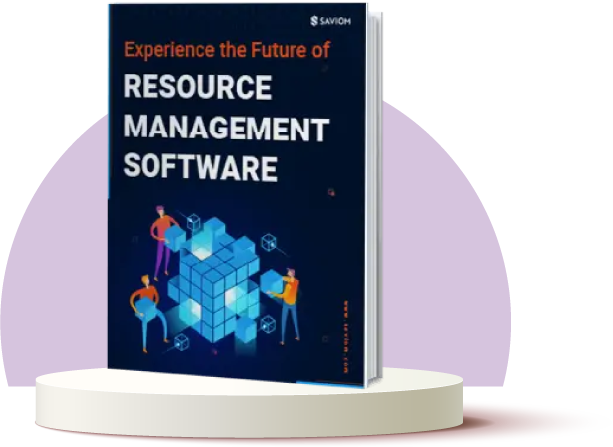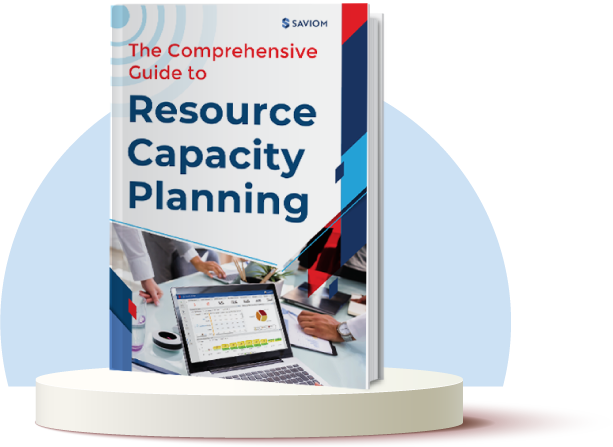We live in an era where globalization and technology continue to disrupt the workforce dynamics. Automation of monotonous tasks with artificial intelligence (AI), Blockchain, 5G enhanced connectivity, human augmentation, edge computing, to name a few, are slowly replacing frequent human interventions with machines and codes.
Therefore, digital dexterity, an evident and evolving need for employees to adapt and adopt emerging technology trends, has become critical. However, it’s imperative that employees also possess “soft skills” which will have even greater value in an automated workplace.
It will not only build distinctively human or soft skills, but it will enable employees to specialize in fields where the machinery is less likely to excel.
According to Deloitte, businesses having a workforce with a broad mix of soft skills have higher rates of innovation and productivity.
We have compiled ten essential soft skills that will do wonders for the future workforce in this blog. But first, let’s start with the basics;
What are soft skills?
Soft skills, also referred to as human skills, relate to the way employees work and interact with others. It differs from hard or technical skills, which are role-specific. Soft skills fall into the following categories:
- Communication and negotiation skills
- Interpersonal skills and empathy
- Leadership and team management skills
- Entrepreneurship and adaptability
- Continuous learning abilities
- Training skills
For example, along with hard skills, the desired trait for a sales associate could be critical thinking, excellent communication, and negotiation skills. Similarly, a graphic designer with collaboration, creativity, and adaptability skills is ideal for any organization.
Why are soft skills important for the future of work?
According to Deloitte, soft skill-intensive occupations will grow at 2.5 times the jobs in other fields and account for two-thirds of all jobs by 2030.
The stat on soft skills can be fascinating because they are traditionally seen as inferior to hard skills. This is possible because hard skills in comparison to soft skills have always been easier to evaluate and measure. Even while pursuing higher education, hard skills such as literacy and numeracy are routinely assessed. But teamwork, collaboration, and resilience? Not so much.
The shift of businesses to automation will severely displace human jobs and make hard skills obsolete quickly. As the nature of work is rapidly transforming, companies must fine-tune employees’ social and emotional abilities that machines cannot replicate. For instance, organizations fostering diversity need people with high emotional intelligence to embrace inclusivity.
Global giants such as Google and Amazon have also emphasized how important soft skills are. For example, in an internal study, Google disclosed that its most successful teams consisted of individuals who brought strong, soft skills to the collaboration process. Thus, the importance of soft skills should be in the DNA of organizations.

Given the benefits of soft skills in the modern business realm, effectively investing in improving them will bring significant advantages – to individuals and businesses.
List of soft skills that will become prominent in 2030:
Soft skills include innate personality traits and abilities that can be learned. Here is the rundown of vital soft skills that will bring a paradigm shift in ways businesses will function:
The 4 C’s
The learning skills of the 21st century are frequently referred to as “4 C’s,” which include critical thinking, creative thinking, communicating, and collaborating. These skills are crucial to employee success.
-
Critical thinking
AI or Machine Learning excel in data interpretation, extracting insights, and unifying data from large sets of information. But in the end, only humans can access this knowledge and use the right data at the right place. Therefore, it is more of taking an inside-the-box, logical, or analytical approach. For example, resource managers can procure and analyze resource metrics reports generated using Business Intelligence to implement resource optimization.
-
Communication
The improvement of staff communication skills may benefit companies to speed up processes, improve employee interactions, create customer ties, etc. that are crucial to generating revenue. Furthermore, with the rise of remote working, communication nowadays is increasingly being carried out through video conferences, recorded talks, podcasts, webinars, etc., presentation skills are also becoming a necessity.
A prime example is personnel in human resource, sales, and managerial roles who heavily depend on interpersonal skills. Thus, they can benefit from strong communication skills.
-
Collaboration
Collaboration is an interpersonal skill that imparts great value in almost every industry. Today remote work also forces businesses to collaborate efficiently while dispersed across various geographical boundaries. Thus, the numerous collaboration tools aid remote work, but the onus is on individual employees to be proactive and make the most of these tools.
Employees with collaborative ability are more likely to engage better with team members and achieve objectives and projects on schedule. Conversely, work quality, employee performance, and staff retention will suffer severely if employees cannot function as one team.
-
Creativity
Workplace creativity is essential for innovation and can be used at all levels. It cannot simply be replicated by the newest technologies. As long as people think beyond the box, they will be okay.
Whether creative problem solving or ideating a breakthrough product for the firm, Creativity is an integral part of business growth and fosters a competitive edge. For instance, creative employees can find innovative ways to perform the same task and reduce the duration, improving productivity.
Contextualized intelligence (CI)
By 2030, A.I. will become more pervasive, and information will become even more attainable than today. However, machines will still not match human intuition, judgment, and empathy. Therefore, contextualized intelligence and the ability to qualify this information will become increasingly crucial as algorithms produce more outputs.
For example, A.I. can shortlist candidates for hiring; however, only an H.R. would know who is best suited based on the candidate’s personality. Hence, contextualized intelligence will become essential and stay prominent in the soft skills list.
Cognitive flexibility (CF)
Do you have the capacity to adapt to the change frequently and productively work on multiple tasks all at once? If yes, you’re demonstrating traits that reside in multi-taskers and which are also appreciated by employers. C.F. is occasionally referred to as task switching. People with greater C.F. are more likely to adjust quickly when initial plans alter, obstacles arise, and are often better at fixing problems.
For example, Agile project management comes with several ad-hoc changes, so people with CF will accommodate these changes faster.
Social and emotional intelligence (EI)
For everything that digital technologies and artificial intelligence can replace, emotional and social intelligence remain innately human. Moreover, as we move towards a globalized society, being aware of and considerate of cultural differences has also become a part of the emotional intelligence mix.
Possessing these qualities helps us to work in collaborative environments, become increasingly diverse and inclusive, and get the best results from everyone.
Leadership skills
Every successful business is a result of two key factors- a strong, level-headed leader and the team. Thus, exemplary leadership skills that can steer the team through success by leading by example is the need of the hour.
In addition, leadership skills help guarantee the project’s and team’s progress, bolstering processes and people to help organizations achieve their goals. Such skills usually are primarily essential for senior-level employees to guide and manage teams.
Entrepreneurial mindset
As robotics and artificial intelligence will take on more technology-led jobs in the future, the resource pool will be required to stay proactive and showcase their interpersonal skills. This will increase the entrepreneurial abilities of creativity, agility, and decision-making.
When an employee has a visionary mindset, they think of the organization as their own and work efficiently to deliver maximum output. Hence, a soft skill like an entrepreneurial approach is needed from employees to make businesses grow.
Problem-solving
Employees with problem-solving skills are more likely to autonomously carry out their responsibilities and surmount challenges intelligently, quickly, and efficiently. Moreover, employees responsible for production, planning, and strategy often rely most on these sorts of skills. It helps them weigh options and actions against one another and deal with complex, changing problems economically.
Negotiation and persuasive skills
Negotiation skills consist of strong interpersonal and communication skills that help maintain good relationships with clients and foster business profitability. For instance, a project manager with negotiation skills and persuasive techniques wins you workable agreements and feasible contracts.
Lateral thinking skill
In an era of continual change and industrial transformation, lateral thinkers resolve problems with an innovative approach- develop a new idea from one known idea. This skill strengthens one’s creativity and increases productivity and profit in any given field.
For instance, what would be the ideal practice to retain top talent and meet millennial expectations in the workplace? A conventional way would be providing open desking, free food, etc. But a lateral thinker would focus on improving corporate culture, introduce flexible work schedules, social engagement, etc.
Work ethic and integrity
The latest survey conducted by Forbes identifies Work ethic and integrity as the crucial ingredient in the workplace.
A strong work ethic will help you build a positive relationship with your employer, seniors, and colleagues, even if you are new in any organization and are still developing technical skills. Many employers would rather work with someone who has a strong working ethic and is eager to learn than a skilled worker who seems unmotivated and is unethical.
Now let’s see some ways to develop soft skills in the workforce and how it can unlock considerable benefits for your organization.
How to build soft skills for your workforce?
Resources are one of the company’s most expensive investments. Yet, despite their value, they are often not upskilled at regular intervals. It is easier to evaluate an employee’s hard skills, backed up with degrees, diplomas, certificates, or work experience. But, how can you evaluate how effectively the individual you hire works with teams?
Thus, organizations must undergo a skill-building program that includes management, communication, empathy, conflict and stress management, self-management training programs, etc.
Typically, businesses spend huge amounts every year on training and recruiting the right staff. Yet, it is challenging for firms to measure the impact of this investment. This is where resource management comes into the picture. An efficient resource planning framework helps organizations identify in-demand soft skills, analyze the gap in the existing workforce and accelerate soft skill development.
A soft skills development program helps to increase the efficiency of employees. It will also foster a company culture that creates a self-reliant and an augmented workforce in an automated workplace.
Today many companies and institutions also carry out programs to build or enhance soft skills among employees. For instance, Deloitte leads “The Art of Empathy” program, which helps leaders learn to walk in the shoes of others. At the same time, Stanford University also offers Compassion Cultivation Training to help people cultivate compassion and empathy for others.
The goal of any learning program within an organization is to improve employee performance by upgrading their knowledge and skills. Forward-looking leaders who invest in soft skills training will be surrounded by people who can most efficiently blend their human intellect with machines.
Over to you
By 2030, the industry will be taken over by automation and A.I., and to sustain these advancements, holistic development of the workforce is the way to go for the future. Thus, leaders need to instill resources with the above-mentioned soft skills and achieve optimal resource efficiency.
It will take two fundamental changes by organizations to help workers achieve this hybrid skillset:
- Spread awareness about the benefits of soft skills to the team.
- Conduct a soft-skill building program to foster this valuable skill set in employees.
With this approach, organizations can make their workforce get ready for the future.
What other skills do you think will become prominent in 2030?
The SAVIOM Solution
SAVIOM is the market leader in offering the most powerful and configurable solutions for managing enterprise resources efficiently and effectively. Having more than 20 years of experience, this Australian-based MNC has a global presence in over 50 countries. It is also popular with more than 100 customers and helping them to achieve their business goals. SAVIOM also has products for project portfolio management, professional service automation, and workforce planning software which can be easily customized as per business requirements.















